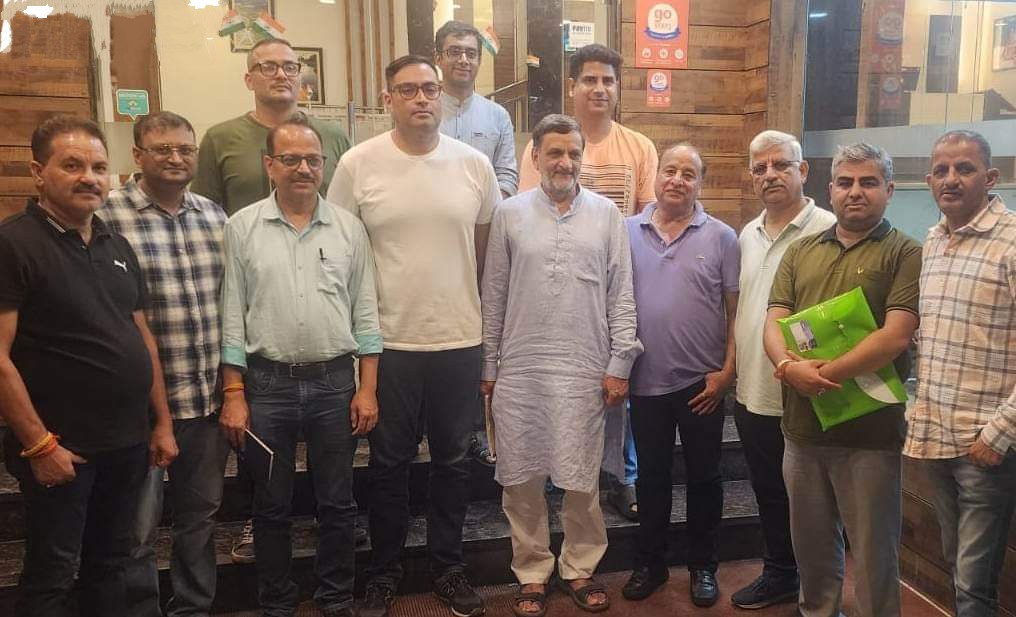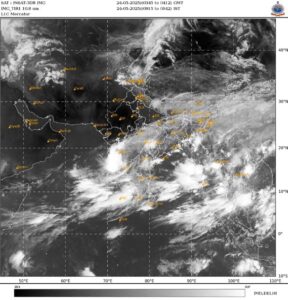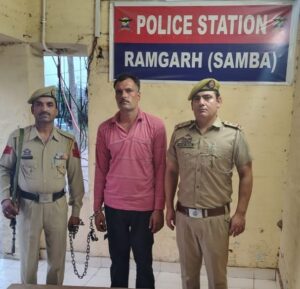Katra Chamber Submits Suggestions for Draft Notification of J&K Tourist Trade Rules 2024

Katra, 17 August— The Chamber of Tourism Trade and Industry Katra convened a crucial meeting of its office bearers to discuss the Draft Notification of J&K Tourist Trade Rules dated 30-07-2024. The meeting was chaired by Raj Kumar Padha, President, and attended by the following key members: Rajnish Purohit (General Secretary), Shiv Kumar Sharma (Mentor), Babu Ram Sharma (Senior Vice President), Ramnik Sharma (Treasurer),Manav Sanmotra (Legal Advisor) Karan Vaid (Secretary), Atul Sharma (Secretary), Susheel Dubey, Vishal Kapoor, Vivek Gupta,Rattan Sharma and Neelam Singh (Executive Members).
During the meeting, the Chamber unanimously expressed significant concerns and objections to various aspects of the draft rules. The tourism industry is a cornerstone of Jammu & Kashmir’s economy, contributing substantially to GDP, employment, and cultural exchange. It is imperative that the regulatory framework governing this industry supports its growth and sustainability. However, the current draft of the J&K Tourist Trade Rules has raised several issues that could hinder the ease of doing business and adversely impact the sector’s overall development.
The Chamber recognizes the importance of a robust regulatory framework for the tourism industry, which is a cornerstone of Jammu & Kashmir’s economy. In the spirit of collaboration and constructive feedback, the Chamber has put forward a series of suggestions aimed at refining the proposed rules to better align with the needs of the industry, while ensuring sustainability and high standards.
Key Suggestions Submitted:
- Registration or Renewal Fees:
• Economic Adjustment Mechanism: Introduce a mechanism that allows for flexibility in fee adjustments based on economic conditions, such as inflation and the overall health of the tourism sector. Fees should be reviewed and adjusted only when justified by significant changes in the economic environment.
• Stakeholder Consultation: Establish a formal process for regular consultation with stakeholders, including business owners and industry representatives, before implementing fee increases. This approach ensures that changes are well-received and justified by industry needs.
• Fee Structure Revision: Revise the registration and renewal fees for trade units and service providers to range from Rs 500/- (Minimum) to Rs 5000/- (Maximum) per annum, based on the size and revenue of the businesses. This tiered approach would be more equitable and less burdensome on smaller enterprises. - Enhancement Period of Fees:
• Gradual Fee Increase: Instead of a 10% increase every two years, the Chamber suggests a more gradual and predictable fee increase, such as 5% every three years. This would provide businesses with more stability and allow better financial planning. - Inspection Period of Registered Units:
• Risk-Based Inspection Frequency: Implement a risk-based approach to inspections, where the frequency is determined by a business’s previous performance and compliance history. High-performing units could be inspected every three to four years, while units with past compliance issues could face more frequent inspections. - Criteria for Four-Star Category Classification:
• Flexibility in Restaurant Requirements: Allow for flexibility in the requirement for a multicuisine restaurant cum coffee shop and a specialty restaurant. Smaller or boutique hotels could fulfill this requirement through partnerships with nearby restaurants or high-quality in-room dining services.
• Cooling Solutions: Reduce the mandatory air conditioning requirement from 75% to 50% to alleviate the financial burden on medium and small establishments.
• Cultural Considerations in Katra: Given Katra’s religious significance, consider providing exemptions or alternatives to the bar and non-vegetarian item requirements. Hotels could instead offer vegetarian or non-alcoholic specialty services that respect local cultural and religious practices. - Staffing Requirements for Star Classification:
• Proportional Staffing Requirements: Adjust the supervisory and skilled staff requirements to be proportional to the size and capacity of the establishment. The Chamber suggests revising the supervisory staff requirement from 20-80% to 10-50% and skilled staff from 20-60% to 10-40%.
• Training and Development Programs: Encourage hotels to invest in regular staff training and development, supported by government incentives or partnerships with hospitality training institutes, to maintain high service quality with appropriate staffing levels. - X-ray Machine and Telephone in Toilets:
• Optional Safety Features: Reclassify X-ray machines and telephones in toilets as desirable safety features rather than mandatory requirements. Hotels could choose to implement these features based on their target market and guest needs.
• Alternative Safety Measures: Offer alternative safety measures, such as emergency buttons or mobile app-based communication systems, which provide similar levels of safety and convenience without the need for costly installations. - Turnaround Time (TAT) in Registration and Renewal of Tourism Licenses:
• Efficient Processing: A swift and transparent turnaround time for the registration and renewal of tourism licenses is critical for encouraging new businesses to enter the market and for existing businesses to operate smoothly. - Availability of Checklists in Draft Notification:
• Comprehensive Checklist: The non-availability of a checklist in the draft notification for inviting objections and suggestions is a significant concern. The Chamber suggests including a comprehensive and accessible checklist in future notifications to ensure a more transparent, efficient, and inclusive process.
These suggestions are intended to make the proposed rules more flexible, sustainable, and responsive to the diverse needs of the tourism industry in J&K, while still upholding high standards of service and safety. The Chamber of Tourism Trade and Industry Katra urges the authorities to revisit these aspects to create a more balanced and realistic regulatory framework that fosters sustainable growth in the tourism industry of Jammu & Kashmir.





